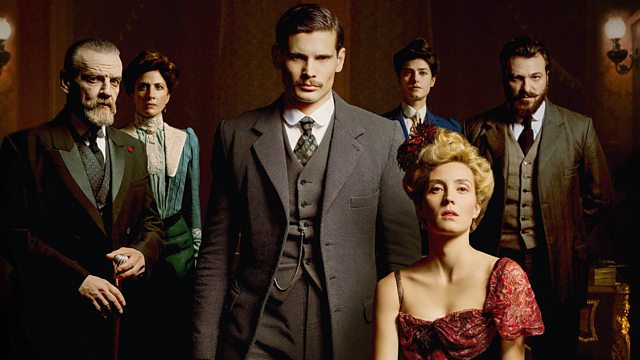Paris Police 1900; Season 1, Episode 3
How is foreign television different from American television?
In my recap of Episode 1, I focused on one difference that is easy to notice: foreign television is often more graphic in its depictions of violence and sex than American (network) television. That difference, in turn, can invite comparisons to streaming shows or cable shows that do not always have to abide by network standards.
But when making this comparison, another difference stands out: pacing. I happened to re-watch Season 1 of Game of Thrones this week. After three episodes of that show, Bran had already been crippled, Jon Snow had left to the Wall, Robert Baratheon had made Ned kill Sansa’s Dire Wolf, a host of minor characters had been introduced, Lady Stark had thwarted an assassination attempt, Dany had married Drogo and was already pregnant.
After three episodes of Paris Police 1900? I’m still not sure who the main character is or which is the main plotline. That’s not necessarily meant as a criticism. American dramas tend to have self-contained episodes or shorter story arcs. In this sense, Paris Police 1900 might be closer to a soap-opera in structure. It moves more slowly and each episode might be more open-ended. I had assumed that Inspector Jouin’s participation in the Berger case would be the A-story, and it probably is. But most of Episode Three finds him hooking up with Jeanne Chauvin, the female would-be lawyer. He’s painfully shy; she’s sexually assertive. They seem an odd pair, but perhaps that’s the point. Still, Jouin’s character is not yet coming into focus as clearly as I would like. In a previous episode, he verbalizes his feelings of guilt at Berger’s demise — only to be laughed at by his peers for feeling responsible. So when he returns to Jeanne’s office for help and apologizes for his previous conduct toward her, we (and perhaps she) sense that he wants absolution for deeper sins. And yet the show avoids making him appear driven by that guilt. He’s sad. Anger is turned inward. In a thematic way, he reminds me of Dominic West’s character in The Wire. He’s having to learn that simply wanting to be good is not enough. Transformation takes effort, and the boat doesn’t like to be rocked.
Meanwhile, Meg (aka Deadly Lips) is getting deeper undercover with the Antisemite League and anyone else that her handlers want to have (or dig up) dirt on. She is supposed to give heroin to the inspector’s wife, which involves shooting up herself, but draws a line when she realizes that the unconscious mark will be raped rather than merely photographed in a compromising position.
One obvious talking point in any historical drama will be the way the period piece functions as a distant mirror — commenting on the current world under the guise of ostensibly painting a portrait of the past. I’m convinced this is a major thematic point of the series — that Fascism was not limited to Germany in the 1930s and that politics of compromising powerful actors that one can’t defeat was not limited to the McCarthy era or American politics.
Is this enough to make one personally invested in any of these characters? I suspect that Meg’s drawing the line at facilitating rape is meant o make her more sympathetic, as is her insistence that she does the dirty work so that her daughter won’t have to, but…drugs, heroin especially, can make people prone to erase any boundaries they have, any lines they won’t cross. And I’m not sure I feel a sense from Meg that she is aware of how much danger she is in even when a masked intruder is not holding a knife to her throat. Plus, who is she explaining her compromises to? Her husband is as indifferent as Jouin’s colleagues when it comes to moral compromises. Just keep the money coming in.
Will there be anyone who is both principled and powerful? Who is not corrupted by power or destroyed by the bad-faith actors? And if so, how do they translate that power not just into personal integrity but into creating systems that ennoble and empower other principled actors to take their place? I think there is a reason this is called Paris Police 1900 rather than being named after one of the characters. More so than many television series, it is interested in systems rather than people. That’s a big difference between foreign television and American television as well. We tend to believe in exceptional individuals who are born great and refuse to be cowed by their environment. The rest of the world may be more prone to see its characters as products of their environment and not just independent actors with free will, impervious to the daily pressures that make ordinary mortals buckle and break. There is a fragility about these characters that is generally scary, and that can make the series hard for those viewers who one something more aspirational, more comforting, or who even just expect television to be an escapist milieu where one need not face those depressing concerns for an hour or two.

